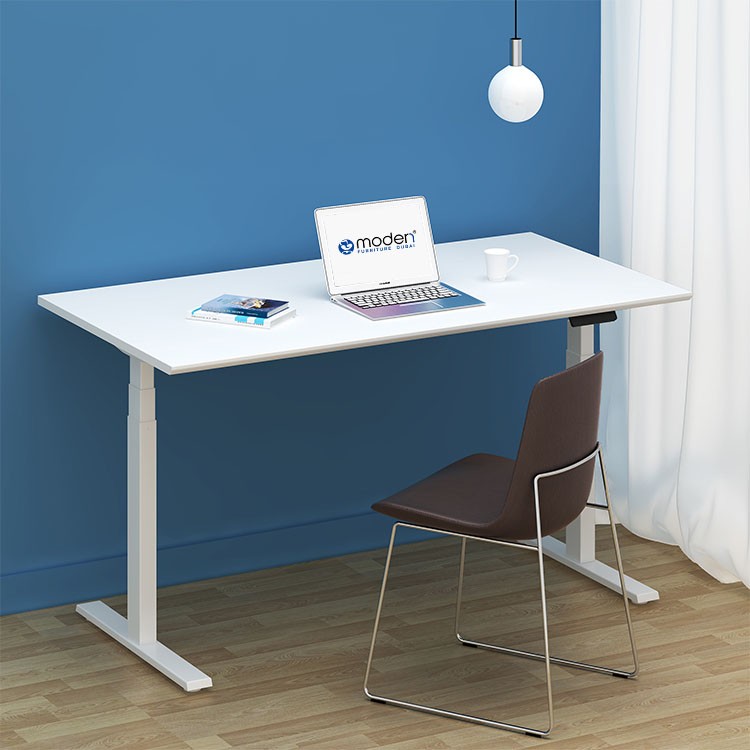
Top Desk Layouts for Remote Teams and Hybrid Workers
Introduction
The shift toward remote and hybrid work has redefined how we use our workspaces. Desks are no longer just personal workstations—they're command centers for video calls, multitasking, and collaboration. The right desk layout can significantly improve your productivity, comfort, and connection with your team. Whether you work from home full-time or split your week between home and office, optimizing your desk layout is essential.
1. The Dual-Screen Setup for Multitaskers
For hybrid workers managing various applications at once, a dual-screen layout maximizes visibility and efficiency. Mounting two monitors side-by-side or stacking them allows smoother task-switching and better posture. Add a monitor arm for adjustable height and more desk surface.
2. L-Shaped Layouts for Dedicated Zones
L-shaped desks are ideal for those who need separation between deep focus and collaborative tasks. One side can be used for computer work, while the other serves as a space for sketching, writing, or reviewing documents. This helps structure your day without leaving your seat.
3. Standing Layout for Health-Conscious Professionals
Using a height-adjustable desk lets you switch between sitting and standing throughout the day. This encourages movement, reduces fatigue, and helps maintain energy—especially during long video calls or strategy sessions.
4. Minimalist Layout for Distraction-Free Work
Keeping your desk setup minimal—just your laptop, a notepad, and essential accessories—can improve mental clarity and reduce stress. It's perfect for remote workers who thrive in clutter-free spaces or frequently join calls on camera.
5. Cable-Managed Layout for Clean Aesthetics
A tangled mess of wires can become a daily annoyance. A layout with built-in cable management or concealed trays keeps everything organized. This setup is especially helpful for hybrid workers who frequently connect and disconnect devices.
6. Collaborative Layout with Shared Work Zones
In hybrid work settings where people rotate in and out, shared desks with universal docking stations and clean design support flexible use. The layout should allow for quick personalization without compromising overall order and cleanliness.
7. Corner Layout for Privacy and Focus
Placing a desk in a corner, either as a standard or L-shape, creates a cocooned workspace perfect for video calls or tasks that require deep concentration. This layout offers both visual and auditory separation.
8. Window-Facing Layout for Natural Light
Setting up your desk to face a window can boost mood and energy. It reduces reliance on artificial lighting and offers occasional visual breaks, which are great for mental refreshment during long hours.
9. Mobile Layout for Agile Workspaces
If you're constantly adjusting your workspace or sharing it with others, a desk with lockable wheels and lightweight components helps you adapt quickly. This layout promotes flexibility without sacrificing stability.
10. Zoning with Storage for Hybrid Needs
Hybrid workers often need access to multiple tools. Desks with smart storage zones—like drawers or under-desk shelves—support better organization. Zoning your workspace keeps personal, professional, and creative tools easily accessible.
Additional Considerations When Designing a Desk Layout
Personalize Your Space Thoughtfully
Add items that inspire you—like a small plant or photo frame—without cluttering the layout.
Prioritize Ergonomics
Use monitor risers, footrests, or adjustable chairs to ensure long hours don’t lead to discomfort.
Use Lighting Strategically
A well-placed desk lamp can improve focus and reduce eye strain, especially in late hours or shared rooms.
Embrace Vertical Space
Install shelves or wall organizers above the desk to store files and reduce desktop clutter.
Consider Acoustics
Soft materials or noise-canceling panels around your desk can improve focus during calls and deep work.
Allow Space for Devices
Make sure your layout accommodates chargers, tablets, and headphones without overwhelming your surface.
Separate Work and Leisure
Avoid placing entertainment or personal items in your direct line of sight to maintain work discipline.
Choose the Right Desk Size
Don’t go overboard—a compact but functional desk helps maintain balance in smaller apartments or shared homes.
Plan for Growth
Your layout should be flexible enough to add peripherals, additional monitors, or task lighting as your role evolves.
Test and Adjust Regularly
A setup that worked last month might not suit your current workflow—keep tweaking until it feels just right.
Recommended Product:

-
Bugal Pro Series Dual Motor Electric Height Adjustable Standing Desk
This high-performance standing desk features smooth dual-motor adjustability, making it ideal for hybrid workers who switch between tasks and positions throughout the day. Its clean design also complements both home and corporate environments.
Final Thoughts
Your desk layout should reflect how you work, think, and communicate. For remote teams and hybrid professionals, a flexible and thoughtfully organized desk is not a luxury—it’s a necessity. Whether it’s an L-shaped layout for structure or a standing desk for energy, the right setup keeps you connected, creative, and comfortable, no matter where you are.
FAQ
Q: What’s the best desk layout for frequent video calls?
A: A minimalist or corner-facing layout helps you stay distraction-free and keeps your background clean during video calls.Q: Can I use a standing desk in a shared apartment?
A: Yes, as long as it fits your space. Many standing desks are compact and can be adjusted to suit different users.


